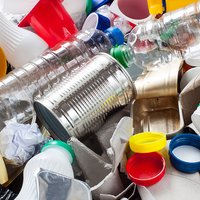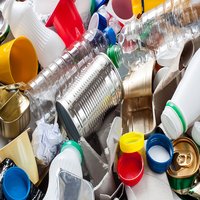Waste Management in the EU: Towards a Circular Economy
How to turn waste into a resource

How to turn waste into a resource

Around 476 kilogrammes per person of municipal waste were generated in the European Union (EU) in 2015, with a significant portion – around one-third of all municipal waste in 2012 – still being disposed of in landfills. To manage waste as a resource, instead of as a problem, the waste industry will have to become a key partner of businesses operating in the circular economy. This means a transition from the "collect and dispose" method of waste management to (1) prevention and (2) maximising both the value and volume of resources within the economy. A new study published by the Scientific Foresight Unit of the European Parliament's Science and Technology Options Assessment (STOA) assesses the role of five waste streams – municipal waste, packaging waste, food waste, bio-waste and critical raw materials – in the transition towards a circular economy in the municipalities and Member States of the EU. It examines the current policy landscape, trends, technologies, employment opportunities and future policy options for the EU. The analysis shows, amongst others, that half of the 28 Member States currently landfill more than 50 per cent of their municipal waste, while six Member States have met the 2030 target of no more than 10 per cent of municipal waste landfilled.
The authors conclude that reliable, consistent and harmonised data is needed to better monitor and compare the state of waste management and progress towards a circular economy across and within EU Member States. Policy makers may provide stronger clarity on definitions as well as support further research toward development of a monitoring system including future modelling assessments taking wider social, environmental and economic indicators into account.
The STOA study "Towards a circular economy – Waste management" was published in September 2017. It was carried out by Oakdene Hollins (UK) and revised by the Circular Economy Research Unit of the Wuppertal Institute at the request of the European Parliament's STOA Panel. It is available for free download.
